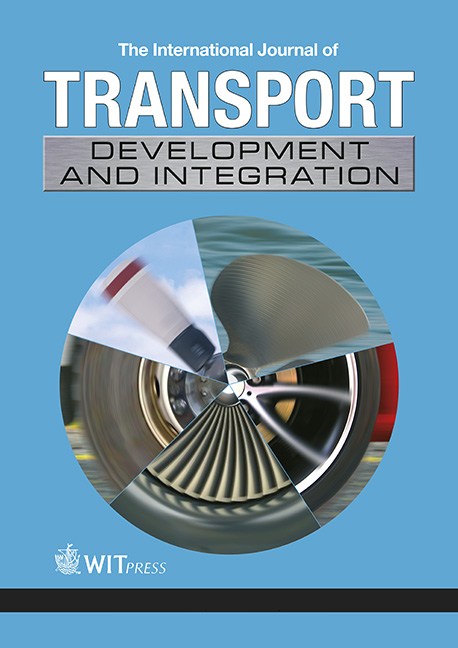User acceptance of public transport systems based on a perception model
Price
Free (open access)
Volume
Volume 6 (2022), Issue 4
Pages
15
Page Range
399 - 414
Paper DOI
10.2495/TDI-V6-N4-399-414
Copyright
WIT Press
Author(s)
Lambang Basri Said & Ilham Syafey
Abstract
The purpose of this study was to evaluate the need for mass transportation in Makassar City, Indonesia and to analyze public perceptions of the relationships among transport management, service qualities, user capacity and acceptance through user satisfaction. This research was conducted in two stages. The first was a survey of public transport users and an estimate of the number of the bus fleet requirements. This was conducted by estimating the number of users, mapping the main public transportation routes and measuring the period based on the departure schedule and the headway. In the second stage, a survey of public perceptions of bus transportation, which covered transport management, service qualities, user capacity, user satisfaction and user acceptance, was conducted. A self-administrated questionnaire had been developed and distributed in 10 residential points representing a certain area in Makassar city, Indonesia. At each point, 40 questionnaires were distributed to respondents by non-probability samplings. The respondents were selected by certain criteria consisting of age, transport need and experience in receiving bus services. out of 400 questionnaires that have been distributed, 315 were returned (78.0%). Of the 315, there were 15 regarded as invalid and 300 were considered valid responses. Therefore, further analyses were done by extracting those 300 valid responses. The results indicated that user acceptance was directly or indirectly influenced by transport management, service qualities, user capacity and user satisfaction. User satisfaction is an intervening variable between service qualities and user acceptance. Meanwhile, user capacity positively and directly affects user acceptance, but indirectly it has a negative relationship with user satisfaction. Therefore, the quality of the bus services in terms of security, comfort and orderliness significantly affects user satisfaction, which impacts acceptance.
Keywords
service qualities, transport management, user capacity, user acceptance.




